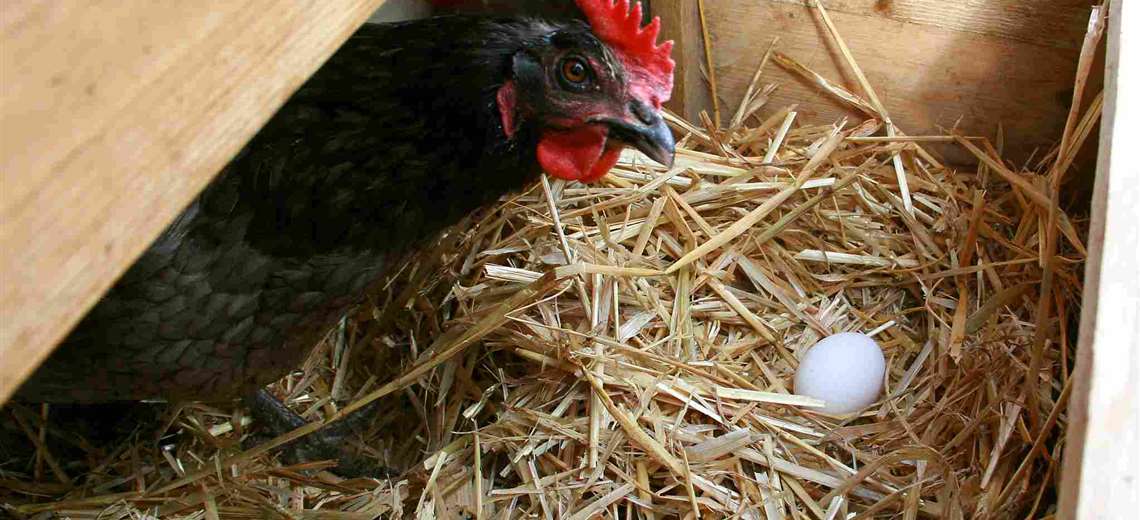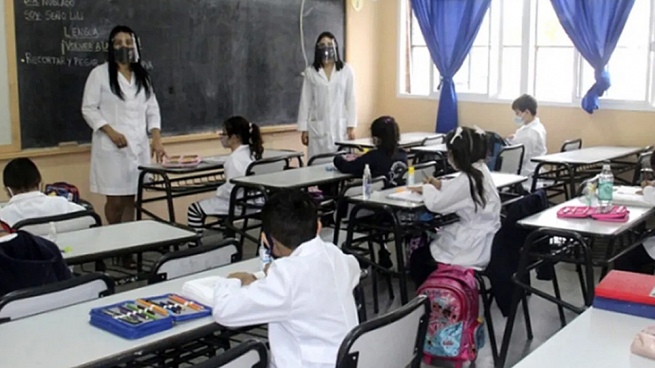From 6:00 p.m. on the Saturday before the day of the Holy Trinity, Will A. was preparing with his friends to comply with the tradition of the date: enter the patios of your neighbors to have a drink without asking permission and so, in complicity with the darkness of the night, go out without anyone noticing, with some garment. It was the 1960s, in a small town located in the enclave of the Grigotan pampas and the first foothills of the Bolivian Chaco mountains.
That story that someone launched triggered the gathering of a group of devotees of the Holy Trinity, when leaving the church of the Virgen del Carmen, in the municipality of Cabezas, Cordillera province. So we refer to the oral memory of its inhabitants to know their customs and traditions.
The day when robberies were forgiven
Fanny widow of Núñez told that many years ago, on the eve of the Holy Trinity, robberies were committed that, according to ecclesial tradition, had no punishment from God and less from the aggrieved.
“They were misdeeds or ‘harmful’ of the boys, the most daring went into the patios of the houses and stole chickens, pigs, goats or some kitchen accessory, to take them to another house. And so the next day people went around the neighborhood looking for their lost objects. The celebration and revelry between relatives and neighbors was armed. This is how a fun Sunday was lived, on the occasion of the date, ”explained Martha Egüez.
In turn, Susana Pedraza stated: “The priests of those times said that there were indulgences for theft, that this sin did not count, because the purpose was to share and fraternize healthily among friends and neighbors. On Trinity Sunday, the neighbors went out to ask in which house their things were or if they had seen their animals, they laughed and exchanged stories and meals. A beautiful custom that has been lost over time.
Under the same tenor, Mery de Arauz told an anecdote: “I have an uncle, mother’s brother, who loved to make ‘jochas’ on the eve of Trinity, he would go into the neighbors’ patios in complicity with his friends and they would steal chickens the next day They took them to the same owner of the birds to cook them and eat them all, Of course, when the chickens were dead and skinned, no one recognized them. The purpose was to celebrate the date.
For his part, Roberto Thames, parish priest emeritus of the Nuestra Señora del Carmen parish, affirms that the seventh commandment of the Law of God, says: You shall not steal, and this is a moral norm of Catholic Christians, “although the ancient customs of the peoples who preserved the beliefs of time immemorial, mixed what was outside the religious rites with the pagan and this was confused, which came to be believed as real; but that was before, I think that until the 70s, that custom has already been lost, because stealing is not good, ”she expresses with a laugh, listening to the narrations.
The Feast of the Holy Trinity
The Catholic Church remembers the feast of the Holy Trinity on the Sunday after Pentecost and this date, also important for Christians, is 50 days after Easter, “because the Holy Trinity makes us familyThames clarifies. According to the tradition of the Church, on this day, the priests wear green robes, which symbolize the life-giving and renewing power.
The Feast of the Holy Trinity It is instituted in memory of the coming of the Holy Spirit to earth. It symbolizes the unity of God the Father, God the Son and the Holy Spirit.
Now, Catholics walk towards the celebration of Corpus Christi, another important date in the ecclesiastical calendar, which is recognized by the State as a national holiday. This will be next Thursday June 16th.
In other corners of the country
In the city of La Paz,he celebration of the festivity of the Lord Jesus of the Great Power takes place on the day of the Holy Trinity. It is an emanation of way of understanding and practicing Catholicism characteristic of the Andean worldEvery year, this festival transforms and invigorates the social life of the ‘wonder city’ and seat of government.
The festivity begins with a parade or entrance, in which some 40,000 people who walk through the neighborhoods of the city, singing and dancing in offering to the venerated image. The dances have a sacred value for the more than 70 fraternities to the sound of melodies performed by some 7,000 musicians.
For its part, in the capital of Beni, the city of the Holy Trinity, this year it resumed its activities, after two steps on pause due to the pandemic. In the “Chope Piesta Santísima Trinidad”, the 336 years of its foundation have been commemorated.
From 6:00 p.m. on the Saturday before the day of the Holy Trinity, Will A. was preparing with his friends to comply with the tradition of the date: enter the patios of your neighbors to have a drink without asking permission and so, in complicity with the darkness of the night, go out without anyone noticing, with some garment. It was the 1960s, in a small town located in the enclave of the Grigotan pampas and the first foothills of the Bolivian Chaco mountains.
That story that someone launched triggered the gathering of a group of devotees of the Holy Trinity, when leaving the church of the Virgen del Carmen, in the municipality of Cabezas, Cordillera province. So we refer to the oral memory of its inhabitants to know their customs and traditions.
The day when robberies were forgiven
Fanny widow of Núñez told that many years ago, on the eve of the Holy Trinity, robberies were committed that, according to ecclesial tradition, had no punishment from God and less from the aggrieved.
“They were misdeeds or ‘harmful’ of the boys, the most daring went into the patios of the houses and stole chickens, pigs, goats or some kitchen accessory, to take them to another house. And so the next day people went around the neighborhood looking for their lost objects. The celebration and revelry between relatives and neighbors was armed. This is how a fun Sunday was lived, on the occasion of the date, ”explained Martha Egüez.
In turn, Susana Pedraza stated: “The priests of those times said that there were indulgences for theft, that this sin did not count, because the purpose was to share and fraternize healthily among friends and neighbors. On Trinity Sunday, the neighbors went out to ask in which house their things were or if they had seen their animals, they laughed and exchanged stories and meals. A beautiful custom that has been lost over time.
Under the same tenor, Mery de Arauz told an anecdote: “I have an uncle, mother’s brother, who loved to make ‘jochas’ on the eve of Trinity, he would go into the neighbors’ patios in complicity with his friends and they would steal chickens the next day They took them to the same owner of the birds to cook them and eat them all, Of course, when the chickens were dead and skinned, no one recognized them. The purpose was to celebrate the date.
For his part, Roberto Thames, parish priest emeritus of the Nuestra Señora del Carmen parish, affirms that the seventh commandment of the Law of God, says: You shall not steal, and this is a moral norm of Catholic Christians, “although the ancient customs of the peoples who preserved the beliefs of time immemorial, mixed what was outside the religious rites with the pagan and this was confused, which came to be believed as real; but that was before, I think that until the 70s, that custom has already been lost, because stealing is not good, ”she expresses with a laugh, listening to the narrations.
The Feast of the Holy Trinity
The Catholic Church remembers the feast of the Holy Trinity on the Sunday after Pentecost and this date, also important for Christians, is 50 days after Easter, “because the Holy Trinity makes us familyThames clarifies. According to the tradition of the Church, on this day, the priests wear green robes, which symbolize the life-giving and renewing power.
The Feast of the Holy Trinity It is instituted in memory of the coming of the Holy Spirit to earth. It symbolizes the unity of God the Father, God the Son and the Holy Spirit.
Now, Catholics walk towards the celebration of Corpus Christi, another important date in the ecclesiastical calendar, which is recognized by the State as a national holiday. This will be next Thursday June 16th.
In other corners of the country
In the city of La Paz,he celebration of the festivity of the Lord Jesus of the Great Power takes place on the day of the Holy Trinity. It is an emanation of way of understanding and practicing Catholicism characteristic of the Andean worldEvery year, this festival transforms and invigorates the social life of the ‘wonder city’ and seat of government.
The festivity begins with a parade or entrance, in which some 40,000 people who walk through the neighborhoods of the city, singing and dancing in offering to the venerated image. The dances have a sacred value for the more than 70 fraternities to the sound of melodies performed by some 7,000 musicians.
For its part, in the capital of Beni, the city of the Holy Trinity, this year it resumed its activities, after two steps on pause due to the pandemic. In the “Chope Piesta Santísima Trinidad”, the 336 years of its foundation have been commemorated.
;















